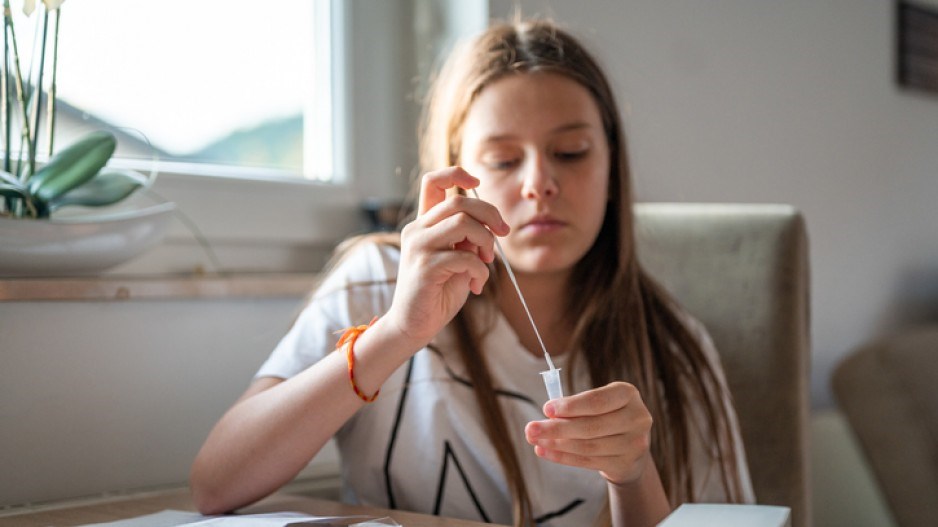Free individual take-home COVID-19 rapid tests could be made available for wider distribution across the province next month, B.C. Health Minister Adrian Dix said during a pandemic modelling update on Tuesday.
A supply of the at-home tests is expected to be delivered by the federal government in mid- to late January, said Dix. “Those will be provided and a plan will be laid out for the use of those tests.”
The province has faced criticism for failing to get the two million rapid tests it earlier received from the federal government into the hands of British Columbians or long-term care homes, while other provinces are providing take-home tests for their populations.
Alberta announced free rapid tests Tuesday at pharmacies, Quebec offered the same, and they are widely available in Saskatchewan and Nova Scotia.
B.C., Manitoba and Ontario do not yet offer free take-home rapid tests, though Manitoba is revisiting that plan and Ontario will offer them for schoolchildren to take home over the winter break.
Provincial health officer Dr. Bonnie Henry said there are different rapid antigen tests and the majority B.C. received — 1.28 million — require a nose swab to be administered by a health provider and include a machine that can’t be taken home.
“The machine is the limiting factor,” said Henry. The tests are instead being used in correctional facilities, and during outbreaks and exposures.
Another 700,000 rapid tests could be taken home, but are in unwieldy packs of 25 to 30 that can’t easily be broken down, and come with a single bottle of testing solution, said Henry.
Other provinces that are offering take-home rapid tests have acquired five-pack configurations. “We don’t have the ones that Alberta is offering,” said Henry, adding some of the single-dose bottles of testing solution could arrive by the end of December.
Henry said the province has been looking for at-home tests similar to those used in the United Kingdom. The so-called lateral flow tests come in kits of about five with a dropper.
“Those are the ones that we had been hoping would be coming earlier on,” said Henry.
Meanwhile, the current supply of rapid tests in B.C. is ample, said Dix. Thirty-five thousand rapid tests are used every week in B.C., said Henry, noting about 534,000 have been used in the province to date.
Use of rapid tests will be expanded where appropriate, Dix said, particularly in rural and remote areas, Indigenous communities and businesses where people live communally, as well as in other circumstances — such as the outbreak at the University of Victoria.




